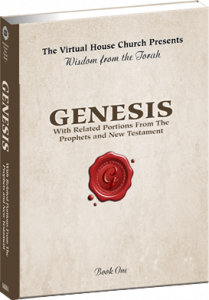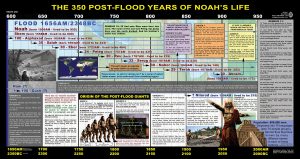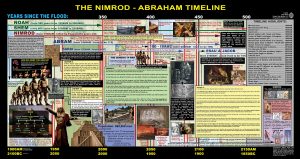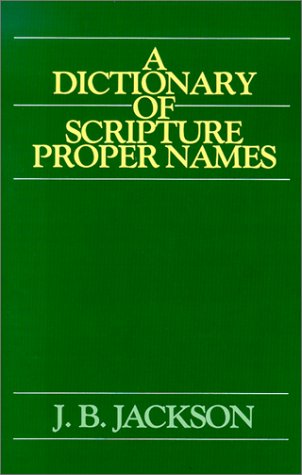Genesis Bible Study:
Lech Lecha (Get Yourself Out)
The Scriptures for this week’s study:
TORAH:
Genesis 12:1-17:27
PROPHETS:
Isaiah 40:21-41:16
NEW TESTAMENT:
Acts 7:1-8;
Romans 3:1-5:11;
Galatians 3:1-29;
Colossians 2:8-23;
Hebrews 7:1-19; 11:1-12
QUICK SUMMARY OF THIS TORAH PORTION:
ARCHIVE OF OUR STUDIES:
2012 Broadcast:
2013 Broadcast:
2016 Broadcast:
2017 Broadcast:
2020 Broadcast:
STUDIES DONE BY OTHERS:
Ardelle’s “Your Living Waters”
Torah Commentary:
- http://yourlivingwaters.com/Genesis/Lech_Lecha-Commentary-2008.pdf
- http://yourlivingwaters.com/Genesis/Lech_Lecha-Commentary-2009.pdf
Workbook Discussion Questions:
How does this week’s Torah Portion Relate to the Haftarah and Brit Chadasha Portions?
What did you find most interesting about this week’s reading?
What is the general theme of this reading and how does it apply to our lives today?
For more details concerning the events of this week’s study, please read the following chapters of Jasher, which complement this Torah portion:
PAST NOTES FROM THIS WEEK’S STUDY:
Learn more about the Genesis 14 War:




If purchased separately at full retail, you would pay nearly $70, but for a limited time, we are offering these items at a discount through this special offer. You will get the Genesis and the Synchronized, Biblically-Endorsed, Extra-Biblical Texts, which is a full-sized, 8.5 x 11 , 500+ page book that includes an Introduction by Rob Skiba, the book of Genesis in both the KJV and the LX side-by-side as a parallel comparison, combined with the complete works of 1 Enoch, Jasher and Jubilees all in one volume. This is a must have for any serious researcher! Also included with this package, is the Amazon best-selling book, Archon Invasion and the Return of the Nephilim and
the 2 hour long, information-packed DVD that goes with it, all for just $40 + shipping & handling.
CLICK HERE
to purchase these timelines in larger, print ready format
More study resources related to the subjects of this week’s study can be found at:
www.babylonrisingblog.com and www.babylonrisingbooks.com
Another Valuable Resource to Have:
Who Was “the Angel of the LORD” that appeared to Hagar?
Paul and the Hebrews 8 Conspiracy
As I have come to learn, understand and love the Torah (instructions/law) of YHWH, I have posted many things on my wall about it. Usually, such posts are met with fairly significant opposition. While it can be frustrating at times, I actually rather enjoy the dialogue. It forces myself and others to dig deeper into what it is that we think we believe. In that sense, I am quite grateful for even the most negative of my detractors.
What’s crazy to me though is that most of the Christians who attack just about anything that has to do with actually obeying God (like we should even need to debate that) will cite Paul – especially his letter to the Galatians – to refute whatever it is that I’ve posted. Yet, Galatians 1 sets the stage for Paul’s true arguments:

Galatians 1:
11 For I would have you know, brothers, that the gospel that was preached by me is not man’s gospel. 12 For I did not receive it from any man, nor was I taught it, but I received it through a revelation of Jesus Christ. 13 For you have heard of my former life in Judaism, how I persecuted the church of God violently and tried to destroy it. 14 And I was advancing in Judaism beyond many of my own age among my people, so extremely zealous was I for the TRADITIONS OF MY FATHERS. 15 But when he who had set me apart before I was born, and who called me by his grace, 16 was pleased to reveal his Son to me, in order that I might preach him among the Gentiles, I did not immediately consult with anyone;17 nor did I go up to Jerusalem to those who were apostles before me, but I went away into ARABIA, and returned again to Damascus.
Paul is telling us that he was formerly zealous, like few others in his fight for the traditions of men. The Pharisees (of which he was a proud member) had added tons of burdensome laws (traditions) to the perfect law of God. Paul later understood that and taught against those things – after he went to Arabia where he was personally taught by Christ Himself for 3 years. Now think about this: Why did he go to Arabia?
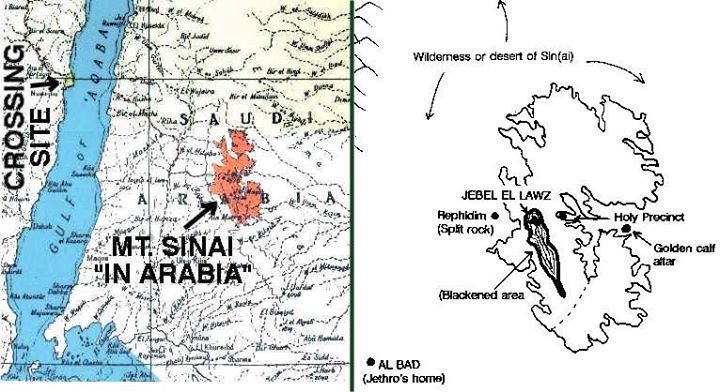
Because that’s where Mt. Sinai is! Now, are we really to believe that Paul went to the very spot where the Law of YHWH was given to Moses, to be taught there by Yeshua Himself… only to then go on a crusade teaching against everything the Father said??? That makes no sense at all. Yet, like many that’s exactly what I used to believe. Partly because of Scriptures like Hebrews 8:13, which we’ll get to in a minute.
Like many of my detractors, I believed the “old” Law was done away with. I am so thankful that YHWH corrected such terribly flawed thinking in me. The Bible makes so much more sense now with this new understanding. Allow me to explain how things changed for me.
I came from a traditional, fundamental (KJV only) Baptist background (which I lived in for over 30 years). So, I’m well aware of most of the usual arguments I read all the time here on Facebook as I used to use them myself. In fact, it’s almost comical how predictible the responses are. But some have asked, how did I end up with such a change of heart/mind? Well, for one thing, I stopped listening to men and started reading the Scriptures for myself, listening instead to the Holy Spirit as John says:
1 John 2:
26 These things I have written to you concerning those who are trying to deceive you. 27 As for you, the anointing which you received from Him abides in you, and you have no need for anyone to teach you; but as His anointing teaches you about all things, and is true and is not a lie, and just as it has taught you, you abide in Him.
Yeshua said on the road to Emmaus that the books of Moses declared who He was.
The Road to Emmaus
Luke 24:
13 And behold, two of them were going that very day to a village named Emmaus, which was about seven miles from Jerusalem. 14 And they were talking with each other about all these things which had taken place.15 While they were talking and discussing, Jesus Himself approached and began traveling with them. 16 But their eyes were prevented from recognizing Him. 17 And He said to them, “What are these words that you are exchanging with one another as you are walking?” And they stood still, looking sad. 18 One of them, named Cleopas, answered and said to Him, “Are You the only one visiting Jerusalem and unaware of the things which have happened here in these days?” 19 And He said to them, “What things?” And they said to Him, “The things about Jesus the Nazarene, who was a prophet mighty in deed and word in the sight of God and all the people, 20 and how the chief priests and our rulers delivered Him to the sentence of death, and crucified Him. 21 But we were hoping that it was He who was going to redeem Israel. Indeed, besides all this, it is the third day since these things happened. 22 But also some women among us amazed us. When they were at the tomb early in the morning, 23 and did not find His body, they came, saying that they had also seen a vision of angels who said that He was alive. 24 Some of those who were with us went to the tomb and found it just exactly as the women also had said; but Him they did not see.” 25 And He said to them, “O foolish men and slow of heart to believe in all that the prophets have spoken! 26 Was it not necessary for the Christ to suffer these things and to enter into His glory?” 27 Then beginning with Moses and with all the prophets, He explained to them the things concerning Himself in all the Scriptures.
Once you go back to the beginning; to the words spoken directly by YHWH Himself to Moses as one speaks with a friend (Exodus 33:11), you quickly come to understand what Paul did and realize that this Pharisee-turned-apostle was not writing in a void, but rather was having epiphany after epiphany about who Christ was and what He truly did based on his tremendous understanding of the Torah as revealed to him by Yeshua and opened up to him by the Holy Spirit.
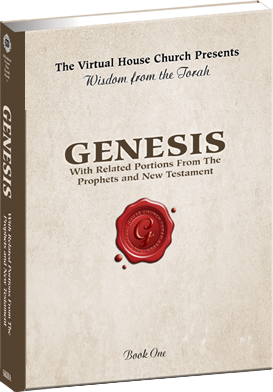 In a way, you could say, I did the same thing Paul did: I spent 3 years allowing Christ to show me all the many things that were about Him in the Torah, which was given at Mt. Sinai. For the last of those 3 years, I recorded my thoughts for others to hear/read/explore for themselves. I’m not saying that I’ve got it all figured out. I’m quite certain I do not. But if you would like to check out what I’ve posted in this regard, you can go to www.virtualhousechurch.com. In addition, I created the workbook you see to the left to enable you to do your own study. It contains a 10 page introduction written by me. That’s it. After that, it’s over 200 pages of nothing but Scripture from Genesis, the prophets and New Testament. My goal with this workbook and the four yet to come after it, is to help facilitate the same type of learning experience Paul and the first century Believers went through, by showing how concepts, ideas and themes from the Torah are woven throughout the entire Bible: all pointing to Yeshua.
In a way, you could say, I did the same thing Paul did: I spent 3 years allowing Christ to show me all the many things that were about Him in the Torah, which was given at Mt. Sinai. For the last of those 3 years, I recorded my thoughts for others to hear/read/explore for themselves. I’m not saying that I’ve got it all figured out. I’m quite certain I do not. But if you would like to check out what I’ve posted in this regard, you can go to www.virtualhousechurch.com. In addition, I created the workbook you see to the left to enable you to do your own study. It contains a 10 page introduction written by me. That’s it. After that, it’s over 200 pages of nothing but Scripture from Genesis, the prophets and New Testament. My goal with this workbook and the four yet to come after it, is to help facilitate the same type of learning experience Paul and the first century Believers went through, by showing how concepts, ideas and themes from the Torah are woven throughout the entire Bible: all pointing to Yeshua.
Still, admittedly, when you get to the New Testament, there are some Scriptures that can be difficult to understand. Take Hebrews 8:13 for instance:
Hebrews 8 (KJV):
13 In that he saith, A new covenant, he hath made the first old. Now that which decayeth and waxeth old is ready to vanish away.
Other translations make it sound even more harsh:
Hebrews 8:(NASB)
13 When He said, “A new covenant,” He has made the first obsolete. But whatever is becoming obsolete and growing old is ready to disappear.
So, how do you reconcile the fact that Yeshua said He did NOT come to do away with/make the Law obsolete with what the author of Hebrews appears to be saying?
Matthew 5: (NASB)
17 “Do not think that I came to abolish the Law or the Prophets; I did not come to abolish but to fulfill.18 For truly I say to you, until heaven and earth pass away, not the smallest letter or stroke shall pass from the Law until all is accomplished. 19 Whoever then annuls one of the least of these commandments, and teaches others to do the same, shall be called least in the kingdom of heaven; but whoever keeps and teaches them, he shall be called great in the kingdom of heaven.
Yeshua said He did not come to abolish the Law, yet so many teach that the Law was done away with at the cross. But if that’s true, what do you do with John’s epistles, which were written after Paul’s death? Did Paul contradict Yeshua? Did John contradict Paul? What’s the deal??
1 John 2 (NASB)
2 My little children, I am writing these things to you so that you may not sin. And if anyone sins, we have an Advocate with the Father, Jesus Christ the righteous; 2 and He Himself is the propitiation for our sins; and not for ours only, but also for those of the whole world.3 By this we know that we have come to know Him, if we keep His commandments. 4 The one who says, “I have come to know Him,” and does not keep His commandments, is a liar, and the truth is not in him; 5 but whoever keeps His word, in him the love of God has truly been perfected. By this we know that we are in Him: 6 the one who says he abides in Him ought himself to walk in the same manner as He walked.
How did Yeshua walk? He walked in 100% obedience to His Father. He had to or He would not have been the perfect, sinless Lamb of God to take away our sins. Sin is defined as transgression of the Law:
1 John 3 (KJV)
4 Whosoever committeth sin transgresseth also the law: for sin is the transgression of the law.
Therefore, to not sin is to not transgress the Law. It’s not rocket science. Yeshua never transgressed His Father’s Law. And under the inspiration of the Holy Spirit, Paul wrote:
1 Corinthians 11 (ESV)
1 Be imitators of me, as I am of Christ.
Woah! Paul said to Corinthian Gentiles that they should imitate him! But note who he was imitating: Christ! So, if the usual assumption of Paul’s ministry is true, how could he, on the one hand, imitate the One Who always obeyed the Father and yet on the other hand, (supposedly) preach that the Law has been done away with and we no longer need to obey it? That makes no sense at all. Yet, we do have many Christians out there today saying they are following Paul’s teachings, while saying they “love God” – while simultaneously arguing against the very definition of loving God as given to us by John:
1 John 5 (KJV)
5 Whosoever believeth that Jesus is the Christ is born of God: and every one that loveth him that begat loveth him also that is begotten of him.2 By this we know that we love the children of God, when we love God, and keep his commandments.3 For this is the love of God, that we keep his commandments: and his commandments are not grievous.
Man… it really does feel like the body of Christ is truly believing in a big pile of contradictions! As I posted in another thread on my wall, I’m realizing that most “Christians” today are really deceived “Paulians” – claiming to follow him, but having a flawed understanding of his writings, just as Peter warned in 2 Peter 3:14-18:
2 Peter 3 (ESV)
14 Therefore, beloved, since you are waiting for these, be diligent to be found by him without spot or blemish, and at peace. 15 And count the patience of our Lord as salvation, just as our beloved brother Paul also wrote to you according to the wisdom given him, 16 as he does in all his letters when he speaks in them of these matters.There are some things in them that are hard to understand, which the ignorant and unstable twist to their own destruction, as they do the other Scriptures. 17 You therefore, beloved, knowing this beforehand, take care that you are not carried away with the error of lawless people and lose your own stability.
Sadly, I would have to include myself in the statements Peter made in verses 16 and 17 for about 41 years of my life. Like many, I twisted and distorted Paul’s writings to advocate for a Nicolaitan doctrine of Grace at the expense of the Law. While I do 100% believe, understand and preach that salvation is a free gift obtained of Grace through Faith in the finished work of Christ, I also believe what Paul said in Romans 6:
Romans 6 (KJV)
1 What shall we say then? Shall we continue in sin, that grace may abound?
2a God forbid.
Even though we have Grace, Paul clearly says that we should not sin (which is transgression of the Law). So, what’s the deal? Is Paul for or against the Law? You really have to get Paul to agree with himself, if you want to use him as your primary source of argument. I’ve come to understand, based on Galatians 1 that there is a big difference between the Law of God (which he absolutely obeyed) and the traditions of men (often referred to in his writings as the “works of the law” – which were of the “traditions of his fathers”), which were considered equal to (and in some cases above) the Law of God. That was what Paul warred against – just as Yeshua did. They did not contradict the Torah! On the contrary. They both fully upheld it, which is why the Holy Spirit could authorize Paul to compare himself with Christ.
I am so thankful to have learned to “change the way I think” these past 3 years. Now the entire Bible harmonizes perfectly, with no contradictions. That said, even if we were toassume that Paul was talking against virtually every other author of Scripture (as most Christians apparently do), I would follow Yeshua, rather than Paul. Thankfully though, Paul was not the heretic most think he is. Remember, he said with confidence, “Imitate me even as I imitate Christ.” Only a fully obedient person could make that claim as Christ walked in 100% obedience to His Father’s “instructions” at all times. Yeshua was perfect. Paul failed (Romans 7) just as we all do. But he understood what John would later write in 1 John 2:
1 My little children, I am writing these things to you so that you may not sin. And if anyone sins, we have an Advocate with the Father, Jesus Christ the righteous; 2 and He Himself is the propitiation for our sins; and not for ours only, but also for those of the whole world.3 By this we know that we have come to know Him, if we keep His commandments. 4 The one who says, “I have come to know Him,” and does not keep His commandments, is a liar, and the truth is not in him; 5 but whoever keeps His word, in him the love of God has truly been perfected. By this we know that we are in Him: 6 the one who says he abides in Him ought himself to walk in the same manner as He walked.
Like David, Paul loved YHWH and His Torah with all his heart (Romans 7:22). Still, we see that Paul really struggled with sin and the flesh in Romans 7… but he found victory through the Spirit in Romans 8! Thus, Moses, David, Yeshua, Peter, Paul, John… they were all in 100% agreement with one another, telling the same story, with no contradictions.
Seems like it’s all good. But then, there’s the book of Hebrews. Many are quick to go to chapter 8 to build their case against what I’m trying to say here. A lot of scholars believe the book of Hebrews was also written by Paul. I tend to agree. That said, I believe there is a conspiracy involved with this book in particular – one perpetuated not by Paul or any other author of Scripture, but (once again) by the translators of our English Bibles. Whether it was overtly intentional I don’t know, but clearly something evil took place one way or another.
The Hebrews 8 Conspiracy Exposed
Before we look at Hebrews 8, we must go back to chapter 4:
14 Seeing then that we have a great high priest, that is passed into the heavens, Jesus the Son of God, let us hold fast our profession.
15 For we have not an high priest which cannot be touched with the feeling of our infirmities; but was in all points tempted like as we are, yet without sin.
16 Let us therefore come boldly unto the throne of grace, that we may obtain mercy, and find grace to help in time of need.
This chapter set up a long discussion about our “great high priest” who is Yeshua. We learn in chapter 5 that He is of a different priestly order:
5 So also Christ glorified not himself to be made an high priest; but he that said unto him, Thou art my Son, to day have I begotten thee.
6 As he saith also in another place, Thou art a priest for ever after the order of Melchizedek.
Verse 6 is a quote from Psalm 110:
4 The Lord hath sworn, and will not repent, Thou art a priest for ever after the order of Melchizedek.
Hebrews 6 expands on this:
17 So when God desired to show more convincingly to the heirs of the promise the unchangeable character of his purpose, he guaranteed it with an oath, 18 so that by two unchangeable things, in which it is impossible for God to lie, we who have fled for refuge might have strong encouragement to hold fast to the hope set before us. 19 We have this as a sure and steadfast anchor of the soul, a hope that enters into the inner place behind the curtain, 20 where Jesus has gone as a forerunner on our behalf, having become a high priest forever after the order of Melchizedek.
I’m not going to quote it all, but the entire chapter 7 is about the contrast between the (flawed) Levitical priesthood and that of the (better) order of Melchizedek through Yeshua. Here are a few verses from chapter 7 worth considering though…
11 Now if perfection had been attainable through the Levitical priesthood (for under it the people received the law), what further need would there have been for another priest to arise after the order of Melchizedek, rather than one named after the order of Aaron? 12 For when there is a change in the priesthood, there is necessarily a change in the law as well. 13 For the one of whom these things are spoken belonged to another tribe, from which no one has ever served at the altar. 14 For it is evident that our Lord was descended from Judah, and in connection with that tribe Moses said nothing about priests.
David called YHWH’s Law “perfect.”
Psalm 19:
7 The law of the Lord is perfect, converting the soul; The testimony of the Lord is sure, making wise the simple;
So how do you improve on perfection?? How can there be fault in perfection? No. Hebrews 4 – 7 tells us what had problems. It was NOT the Law of God. It was the priesthood contained within it. The former priesthood had many issues and required many priests as they kept dying off.
23 The former priests were many in number, because they were prevented by death from continuing in office, 24 but he holds his priesthood permanently, because he continues forever. 25 Consequently, he is able to save to the uttermost those who draw near to God through him, since he always lives to make intercession for them. 26 For it was indeed fitting that we should have such a high priest, holy, innocent, unstained, separated from sinners, and exalted above the heavens. 27 He has no need, like those high priests, to offer sacrifices daily, first for his own sins and then for those of the people, since he did this once for all when he offered up himself. 28 For the law appoints men in their weakness as high priests, but the word of the oath, which came later than the law, appoints a Son who has been made perfect forever.
Keep in mind that the Bible was not written with chapters and verses. In our Western mindset, we think “New chapter=new thought.” This is not so with the Bible. It was all one complete thought. Thus, continuing in what we *call* chapter 8, we must bear in mind all that was said prior. Therefore, picking up where Hebrews 7:28 leaves off, we read in the beginning of Hebrews 8:
1 Now the point in what we are saying is this: we have such a high priest, one who is seated at the right hand of the throne of the Majesty in heaven, 2 a minister in the holy places, in the true tent that the Lord set up, not man.
From that point on, this is where I see a big problem: Our English Bible translators (yes, even in the KJV) took some liberties with the text. Because of this, many do err greatly in their understanding of Hebrews 8:7-13 in particular – I know because I certainly did myself. But don’t believe me. Rather check the Greek (and your KJV or NASB, which were both kind enough to show you additions that did not exist in the text) for yourself. In both verses 7 and 13 for instance (especially 13), the word “covenant” was added where it should not be, thus making it sound like the “old covenant” has been done away with.
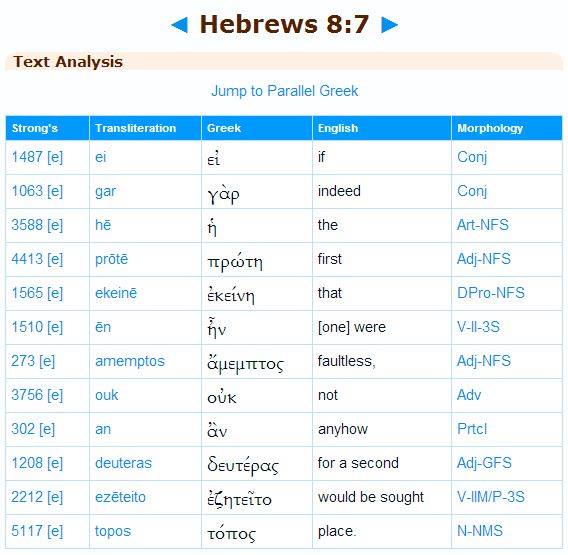
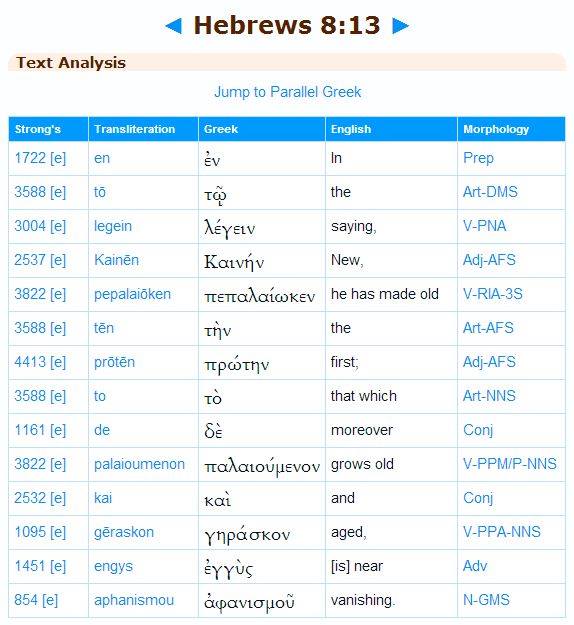
Such tampering is – in my opinion – far too common for comfort. Take for instance the issue of the “first day of the week” as it pertains to changing the Sabbath (sabbaton) to Sunday, when the Greek text does not at all support such a view:
https://www.facebook.com/notes/rob-skiba/satan-sabotaging-the-sabbat%C5%8Dn/10152265562352506
As we’ve already seen, the context of Hebrews 8 is given in chapters 4 – 7, which are all about Yeshua having a better priesthood than that of the Levitical priesthood (which failed miserably). This is why chapter 8 starts out with “Now this is the main point…”
The main point of the prior 4 chapters was that the PRIESTHOOD of the Levites has been replaced with that of Yeshua’s order of Melchizedeck priesthood (since He was from Judah and not Levi). That is what was replaced and made obsolete, not God’s “perfect” Law which verse 10 tells us is now written on our hearts! To insert the word “covenant” into verses 7 and 13 is to completely contradict verse 10 (and the rest of the Bible). I don’t blame myself and others for misunderstanding this. I blame the utter nonsense inserted by translators and taught by people who didn’t bother to look into it for themselves. Such things have caused great confusion in the body of Christ concerning God’s Law.
This is why I maintain that you cannot trust any “translation/version” of the Bible that is in English. You must go back to the Hebrew and Greek – and in this instance, pay attention to the INSERTIONS in the text. Especially those that seem to contradict the whole of Scripture. When I read Hebrews 8 and saw the italicized words in my KJV, it prompted me to look into it deeper. Hebrews 8 caps off what was said in the prior 4 chapters by saying…
“1 Now of the things which we have spoken this is the sum: We have such an high priest, who is set on the right hand of the throne of the Majesty in the heavens;2 A minister of the sanctuary, and of the true tabernacle, which the Lord pitched, and not man.”
(The NASB says, “Now the main point in what has been said is this:“)
Whether Paul wrote this or not, it is clear this author is telling us the context we should be considering for that chapter. Verse 10 tells us about an upgrade in the Law (going from stone tablets to being written on our hearts and minds). So, how can we call such a significant upgrade “obsolete” as most of our Bibles do in verse 13? That makes no sense at all.
Replace the word “covenant” (which was wrongly inserted into verses 7 and 13) with the “main point” of the prior 4 chapters and you will see that it is the old “priesthood” (which did indeed become obsolete) that is being replaced by the better one through Christ (in the order of Melchizedek), thus, enforcing the upgraded Law, which has now been written on our hearts as declared in vs. 10:
For this is the covenant that I will make with the house of Israelafter those days, declares the Lord: I will put my laws into their minds,and write them on their hearts, and I will be their God,and they shall be my people.
Keeping the “main point” in focus, let’s now read Hebrews 8 with the proper understanding laid out for us in the previous 4 chapters:
Hebrews 8 (ISV)
1 Now the main point in what we are saying is this: we do have this kind of high priest, who sat down at the right hand of the throne of the Majesty in heaven 2 and who serves in the sanctuary, the true tent set up by the Lord and not by any human. 3 For every high priest is appointed to offer both gifts and sacrifices. Therefore, this high priest had to offer something, too. 4 Now if he were on earth, he would not even be a priest, because other men offer the gifts prescribed by the Law. 5They serve in a sanctuary that is a copy, a shadow of the heavenly one. This is why Moses was warned when he was about to build the tent: “See to it that you make everything according to the pattern that was shown you on the mountain.” 6 However,Jesus has now obtained a more superior ministry, since the covenant he mediates is founded on better promises.
7 If the first priesthood had been faultless, there would have been no need to look for a second one, 8 but God found something wrong with his people [NOTE: this verse proves the context by using the word “people” – as in Levites. It does not say God found something wrong with His “perfect” Law] when he said,
“Look! The days are coming, declares the Lord, when I will establish a new covenant with the house of Israel and with the house of Judah.
9 It will not be like the covenant that I made with their ancestors at the time when I took them by the hand and brought them out of the land of Egypt.
Because they did not remain loyal to my covenant, I ignored them, declares the Lord.
10 For this is the covenant that I will make with the house of Israel after that time, declares the Lord: I will put my laws in their minds and write them on their hearts.
I will be their God, and they will be my people.
11 Never again will everyone teach his neighbor or his brother by saying, ‘Know the Lord,’ because all of them will know me, from the least important to the most important.
12 For I will be merciful regarding their wrong deeds, and I will never again remember their sins.”
13 In speaking of a “new” priesthood, he has made the first one [the Levites] obsolete, and what is obsolete and aging will soon disappear.
Indeed, by 70 AD, the Temple was destroyed and the first, aging, flawed Levitical priesthood was forever replaced by the better one we have in Christ, in the order of Melchizedek. Suddenly, now the whole thing makes perfect sense – instead of blatantly contradicting itself.
Jeremiah 16:
19 Yahweh, my strength, and my stronghold, and my refuge in the day of affliction, to you shall the nations come from the ends of the earth, and shall say, Our fathers have inherited nothing but lies, vanity and things in which there is no profit.
Again, I don’t know who, in the natural, is responsible for this “conspiracy” to make YHWH’s Law obsolete, but it is quite clear to me that Satan’s hand is behind it in the supernatural. And I can say with full confidence that Paul was not in league with him.
Blessings and Shalom!
– Rob Skiba
What was nailed to the cross? Please consider these teaching by 119 Ministries before answering that question:
Notes From the 2012 Broadcast:
Timelines:
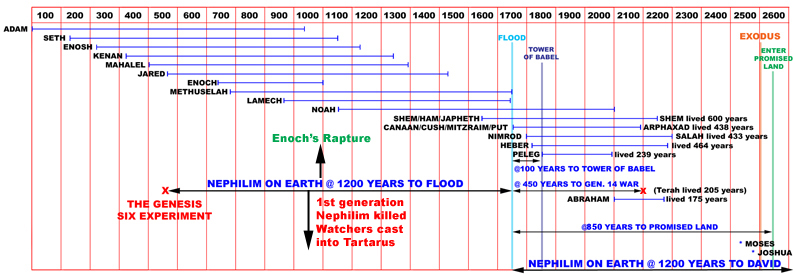
The Genesis 14 War:
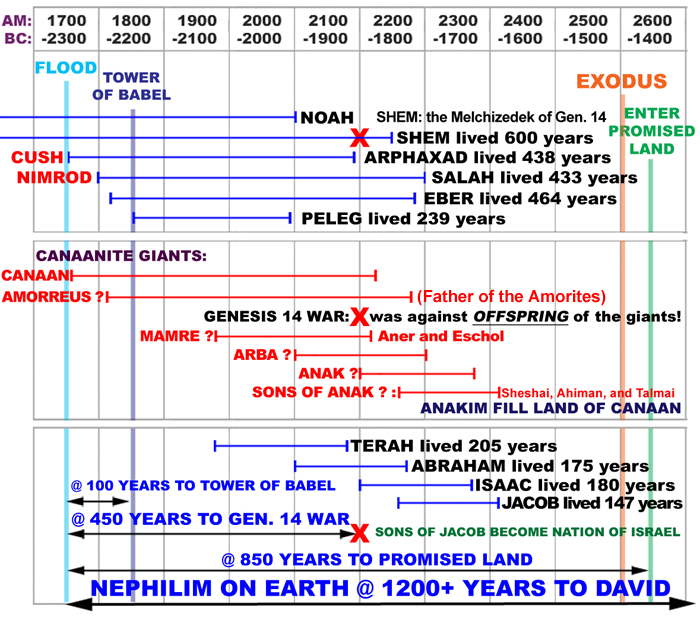
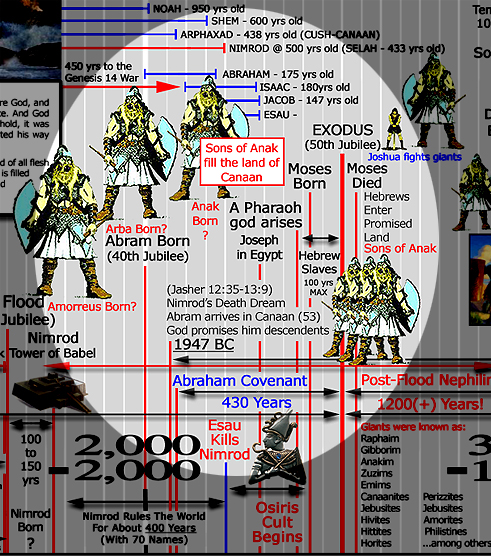
The Genesis 14 War and the post-Flood giants:http://www.babylonrisingblog.com/Nephilim2.html
More study resources related to the subjects of this week’s study can be found at:
www.babylonrisingblog.com and www.babylonrisingbooks.com
The Tribulation Protection Plan:
Exodus 34:21-24 (NLT)
21 “You have six days each week for your ordinary work, but on the seventh day you must stop working, even during the seasons of plowing and harvest.
22 “You must celebrate the Festival of Harvest with the first crop of the wheat harvest, and celebrate the Festival of the Final Harvest at the end of the harvest season. 23 Three times each year every man in Israel must appear before the Sovereign, the Lord, the God of Israel. 24 I will drive out the other nations ahead of you and expand your territory, so no one will covet and conquer your land while you appear before the Lord your God three times each year.
Leviticus 26:3-13 (NRSV)
3 If you follow my statutes and keep my commandments and observe them faithfully, 4 I will give you your rains in their season, and the land shall yield its produce, and the trees of the field shall yield their fruit.5 Your threshing shall overtake the vintage, and the vintage shall overtake the sowing; you shall eat your bread to the full, and live securely in your land. 6 And I will grant peace in the land, and you shall lie down, and no one shall make you afraid; I will remove dangerous animals from the land, and no sword shall go through your land. 7 You shall give chase to your enemies, and they shall fall before you by the sword. 8 Five of you shall give chase to a hundred, and a hundred of you shall give chase to ten thousand; your enemies shall fall before you by the sword. 9 I will look with favor upon you and make you fruitful and multiply you; and I will maintain my covenant with you. 10 You shall eat old grain long stored, and you shall have to clear out the old to make way for the new. 11 I will place my dwelling in your midst, and I shall not abhor you. 12 And I will walk among you, and will be your God, and you shall be my people. 13 I am the Lord your God who brought you out of the land of Egypt, to be their slaves no more; I have broken the bars of your yoke and made you walk erect.
Also listen to John William Galt (the voice of the movies) reading Psalm 91:
More related study resources: babylonrisingblog.com and babylonrisingbooks.com

